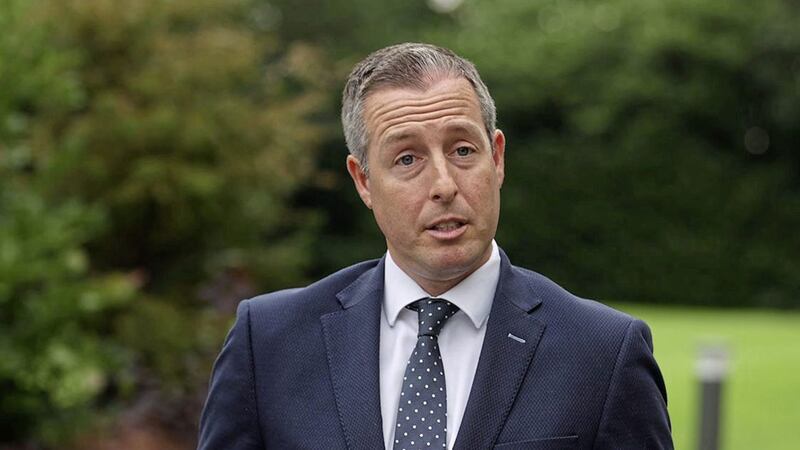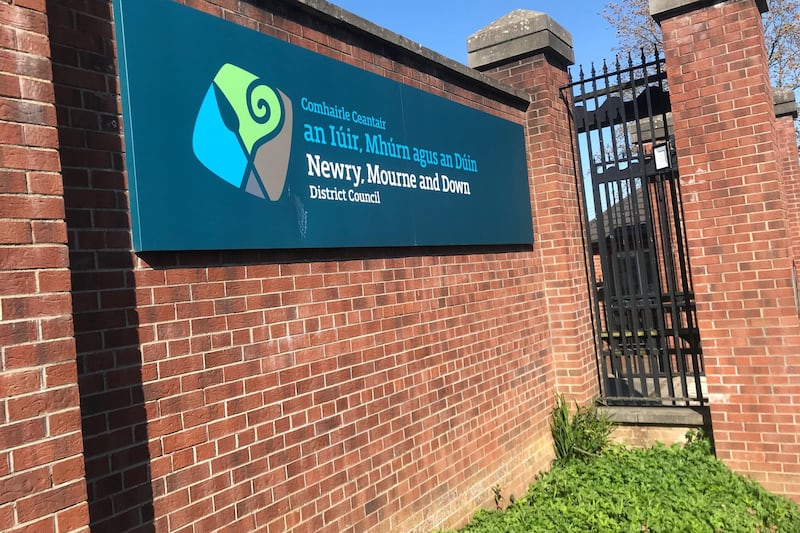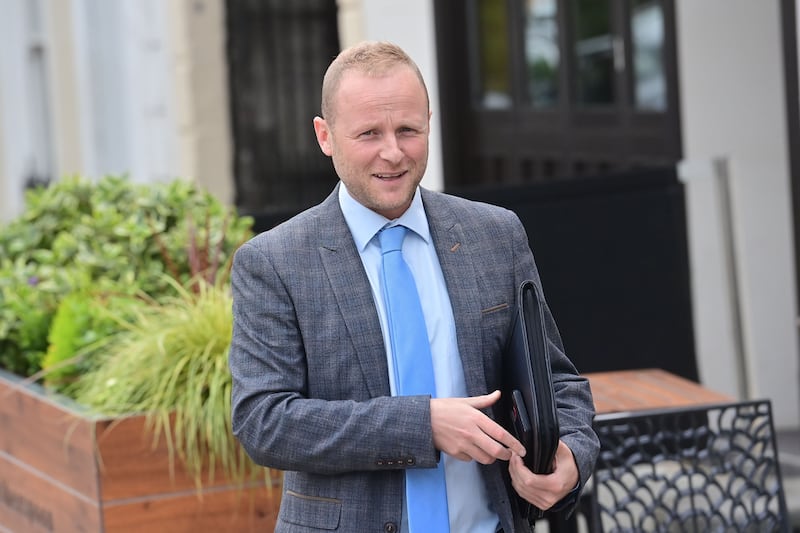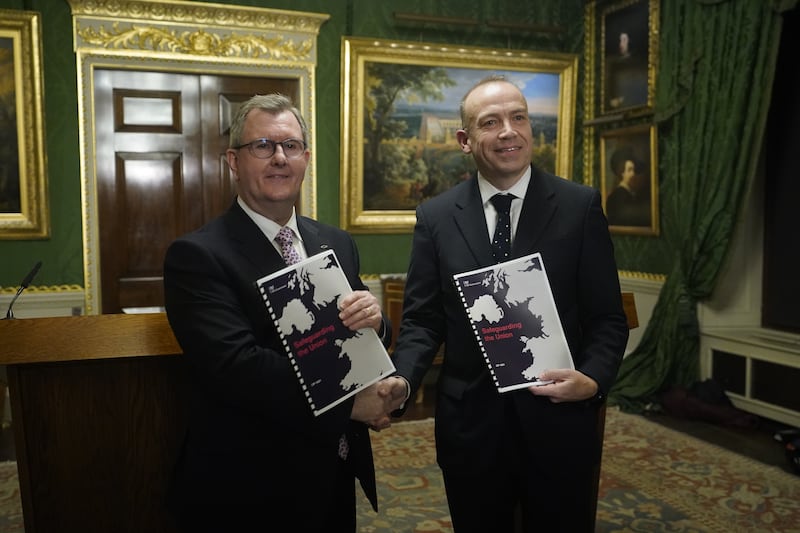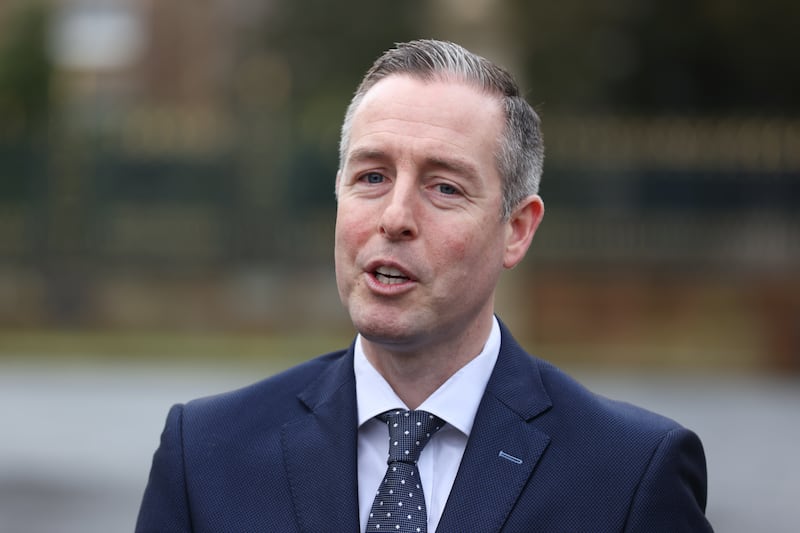Northern Ireland First Minister Paul Givan is expected to announce his resignation at around 430pm today.
The resignation is part of the DUP's protest against the Northern Ireland Protocol.
If the resignation takes place, it will also trigger the resignation of Deputy First Minister Michelle O'Neill. It is understood other ministers at Stormont will remain in their posts ahead of the assembly election in May.
However, the Executive could not take any significant decisions.
That would prevent the coalition from agreeing a three-year budget – a spending plan that is currently out for public consultation.
A planned official state apology by Mr Givan and Ms O’Neill to victims of historic institutional abuse, scheduled for March, could also not happen.
DUP leader Sir Jeffrey Donaldson has repeatedly threatened to bring down the Stormont institutions in protest against the so-called Irish Sea border, introduced as part of the post-Brexit protocol.
Agriculture Minister Edwin Poots last night ordered a halt to Brexit agri-food checks at Northern Ireland ports required under the terms of the Northern Ireland Protocol.
This morning, the status of Brexit checks at ports remained unclear after the midnight deadline passed for a ministerial order to halt them.
A spokesman for Boris Johnson confirmed the British prime minister was not aware the DUP planned to suspend checks.
Asked if Mr Johnson would like to see the checks continue, the spokesman said: "Yes, we would like this situation to be resolved, recognising it is a matter for the Northern Ireland Executive."
Pressed on whether the checks could be carried out at ports in Great Britain rather than on arrival in Northern Ireland, the spokesman said: "We are looking into the legal position."
The spokesman added: "We certainly weren't aware that this was the approach the DUP were going to take.
"I'm not sure what preparatory work has gone on, on the basis this could happen."
Boris Johnson has said it is “crazy” to “have checks on goods that are basically circulating within the single market of the United Kingdom”.
Speaking on a visit to Blackpool, the British Prime Minister said he welcomed talks continuing between Foreign Secretary Liz Truss and European Commission vice-president Maros Sefcovic following Edwin Poots’ decision to order a halt checks at Northern Ireland’s ports.
Mr Johnson said: “What you could have, of course, is a common-sensical… practical steps to weed out, to check on things that might be at risk of circulation, as they say in Brussels, are at risk of circulation in Ireland, as well as Northern Ireland.
“Now we can do that, but without having a full panoply of checks on the GB/NI coast and at the airport, and that’s the way forward.
“I think practical common sense is what’s needed.”
Asked if he was therefore going back on what was agreed with the EU, Mr Johnson said: “Actually, if you look at the protocol, which I’m sure you have studied in detail, there’s plenty about uninterrupted east-west trade.”
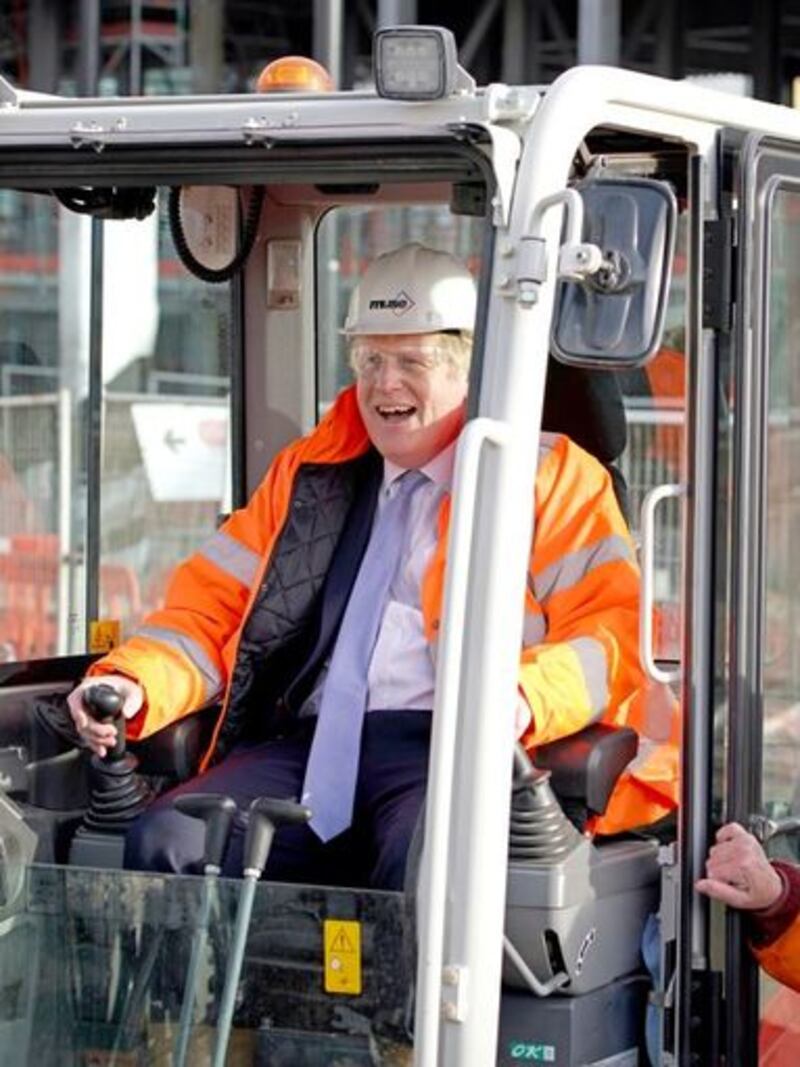
There has been no confirmation from Stormont officials whether they intend to comply with the order made by Mr Poots..
The European Commission has said the decision to halt agri-food checks creates “further uncertainty and unpredictability”.
DUP rivals at Stormont insist Mr Poots’ direction is unlawful and civil servants are obliged to follow the law at all times.
An EC spokesperson said: “The European Commission has been working tirelessly with the UK Government to address practical challenges related to the implementation of the protocol.
“The decision by the Northern Irish Minister for Agriculture (Edwin Poots) is therefore unhelpful.
“It creates further uncertainty and unpredictability for businesses and citizens in Northern Ireland.
“The European Commission will closely monitor developments in Northern Ireland pursuant to this announcement.”
The spokesperson added: “Vice president Maros Sefcovic will speak to the UK Foreign Minister Liz Truss on Thursday afternoon to continue our discussions on finding durable solutions for the people of Northern Ireland.
“He will recall that controls on goods arriving in Northern Ireland from Great Britain are a key element of the protocol.
“They are necessary for Northern Irish business and citizens to continue to benefit from access to the single market for goods.
“They are also necessary to avoid a hard border on the island of Ireland.”
In relation to NI Protocol checks: I’m a Conservative. I believe in the Rule of Law and adhering to obligations we voluntarily entered. There’s no ifs and buts on this. The reputation of the UK on these matters is important. Anyone who cares about the UK should feel the same
— Simon Hoare MP (@Simon4NDorset) February 3, 2022
Lorries were still being received at a Department of Agriculture, Environment and Rural Affairs (Daera) checking facility in Belfast Port earlier on Thursday morning.
Several vehicles entered the facility after the ferry arrived from Cairnryan in Scotland at 6am.
The picture is further clouded due to the fact some of the port checks have been delegated to local council staff while UK Border Force personnel also have a presence at the facilities. It is unclear what would happen to their roles if the Daera staff withdrew.
Mr Poots’ direction only relates to the sanitary and phytosanitary (SPS) checks required by the protocol. The customs procedures on Irish Sea trade are unaffected by his instruction.
Announcing the move on Wednesday, Mr Poots said legal advice he had sought on the issue supported his view that he was entitled to stop the checks.
The British government has said it will not intervene in what it has characterised as a matter that falls within the Stormont Executive.
Government critics dispute this contention, highlighting that the UK has a duty under international law to abide by the terms of the Brexit Withdrawal Agreement.
Regardless of events, the legal and administrative advice is that these are international obligations on traders and they should continue to meet those obligations whether or not there’s a guy with a hi-vis to greet them at the Port.
— Manufacturing NI (@ManufacturingNI) February 2, 2022
Northern Ireland Secretary Brandon Lewis has denied claims the development is a “stitch-up” between the Government and the DUP.
“No, absolutely not,” he told ITV on Wednesday night. “This is a decision that the minister in Northern Ireland has taken.”
Mr Poots’ order came after he last week failed to secure the wider approval of the Stormont Executive to continue checks on agri-food produce arriving in Northern Ireland from Great Britain.
The minister argues that in the absence of Executive approval he no longer has legal cover to continue the documentary checks and physical inspections.
His bid to seek a ministerial vote at the Executive last week was branded an electoral stunt by other parties.
They insist the Executive has already agreed that Mr Poots’ department has responsibility for carrying out the checks and he does not have the authority to halt processes that are required under the Withdrawal Agreement, an international treaty.
The dispute centres on whether Mr Poots needs the authority of the wider Stormont Executive to conduct the checks.
Claiming recent court rulings have clarified that such authority is required, Mr Poots tried to secure the approval of the Executive by asking for the matter to be considered at last Thursday’s meeting.
He did so in the knowledge that if the issue was elevated to the Executive, his party could at that point exercise a veto to block approval for the checks.
Realising that, Sinn Féin used its own veto to prevent the issue from getting on the agenda.
The episode is playing out as the UK and EU continue negotiations aimed at reducing the number of checks required by the protocol.
On @BBCNolan today -
— Stephen Nolan (@StephenNolan) February 3, 2022
Breaking - Nolan Show understands DUP First Minister Paul Givan intends to announce his resignation from his post this afternoon
@bbcradioulster
@BBCSounds
03030805555 | 81771 pic.twitter.com/mDnSTO6r59
